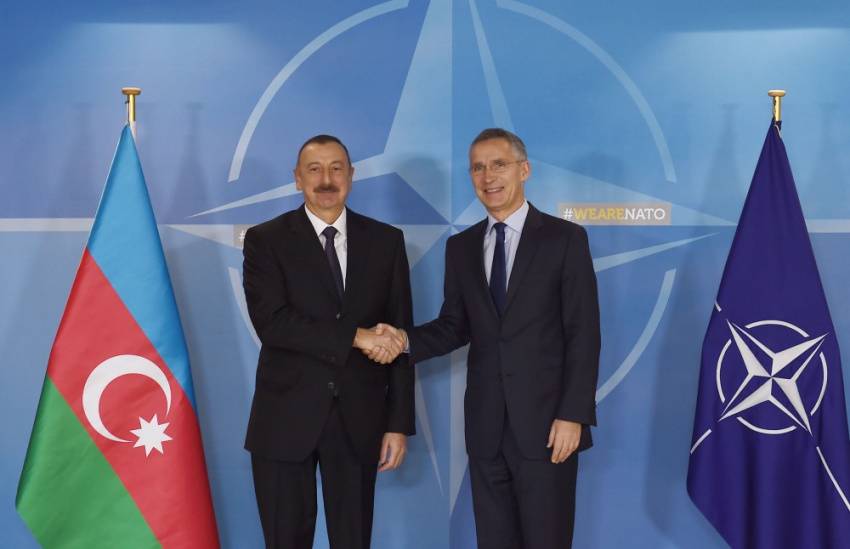1006 Views
NATO’s Quiet Coup in the Caucasus: Azerbaijan Becomes the Frontline
In 1994, after Baku and NATO signed their initial agreements, military, educational, and diplomatic cooperation between the two sides began—setting the stage for a gradual but fundamental shift in the regional balance of power. The South Caucasus, once a traditional sphere of Russian influence, has since become a testing ground for the West’s expanding footprint.
By early 2008, this cooperation deepened under the Defense Education Enhancement Program (DEEP), focusing on military reform, counterterrorism, and academic collaboration. Over the years, NATO’s engagement with Baku may have seemed symbolic, but recent developments reveal a more ambitious trajectory.
Last Thursday, Azerbaijani President Ilham Aliyev met with representatives from 15 NATO member states in Baku. The discussions centered on expanding defense cooperation, energy security, and modernizing Azerbaijan’s armed forces—positioning Baku as a logistical and operational partner for future NATO missions.
This meeting should not be dismissed as a mere diplomatic formality. The presence of senior NATO delegates from Europe and the United States signals the West’s firm intention to deepen its military and intelligence presence along Russia’s southern—and Iran’s northern—borders.
The implications are profound. These developments increase the Western security footprint in a volatile region and reignite the competitive dynamic between Russia and NATO in the Caucasus. Relations between Moscow and Baku, already tense since the downing of the Azerbaijani airliner, have reached their lowest point in decades.
Strategically, NATO’s growing presence threatens to erode Russia’s long-standing dominance in the region. After years of direct and indirect control, Moscow now faces a potential challenge that may provoke a calculated response.
According to Russian military analyst Konstantin Sivkov, “If NATO consolidates its presence in the South Caucasus, the Caspian Sea will no longer remain a ‘Sea of Peace.’ The region will face a dramatic rise in military and terrorist threats. Baku’s moves demand a proportional response from Moscow.”
At the same time, Russia continues to sustain its influence through military bases in Armenia and areas around Georgia, as well as through economic and political leverage. Yet, its current military commitments and global entanglements have weakened its immediate grip—creating an opening that NATO and Baku appear eager to exploit.
Analysts warn that NATO’s silent expansion could form the basis of an informal “Turkic NATO” — an emerging alliance aimed at containing Iran, China, and Russia through a Turkic buffer zone in Central Asia. Closer military cooperation between Azerbaijan and NATO effectively shortens the strategic distance between the alliance and its primary rivals.
Taking advantage of the limited regional focus of both Iran and Russia, Baku and NATO are quietly advancing a project whose outcome is unlikely to benefit any of the region’s traditional powers.
With the West’s growing presence in the Caucasus and the acceleration of NATO–Russia competition, the region is on the verge of a geopolitical reconfiguration. Under the guise of “military modernization,” NATO is embedding itself deeper into Azerbaijan through joint exercises, intelligence partnerships, and training programs.
In this new architecture, Baku is no longer merely a partner—it is becoming NATO’s hammer in the Caucasus.
Translated by Ashraf Hemmati from the original Persian article written by Navid Daneshvar
https://www.trtrussian.com/article/cdc504a9d6f6
https://vz.ru/news/2025/11/6/1372040.html
https://www.newsweek.com/russia-azerbaijan-aliyev-putin-2103182
https://www.newsweek.com/russia-alarmed-new-nato-presence-on-doorstep-11009345
https://vz.ru/world/2025/11/7/1372190.html

Comment
Post a comment for this article